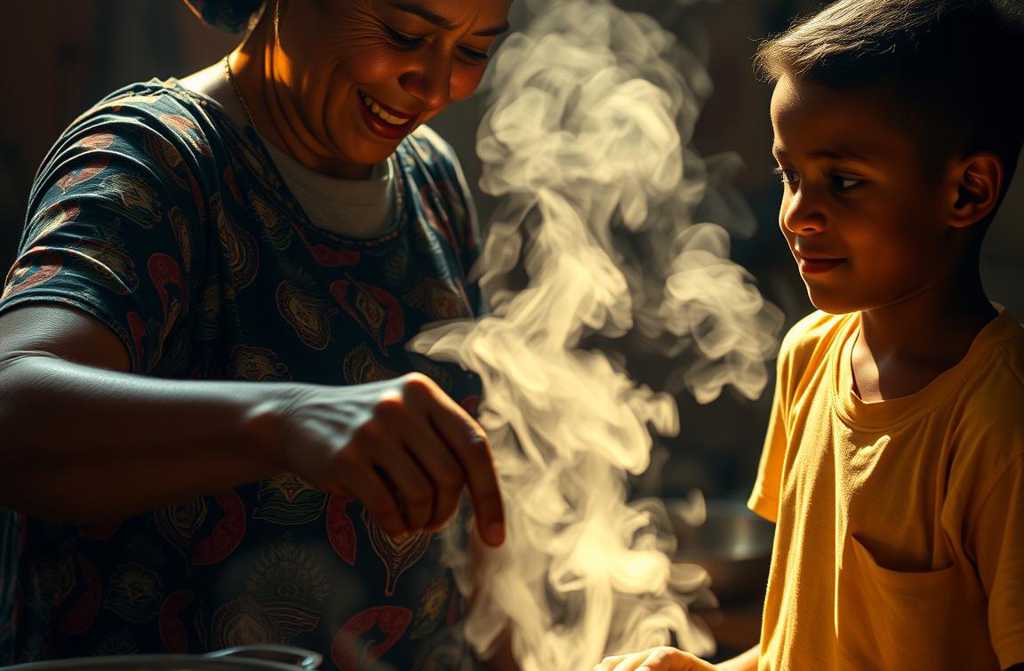З життя
In Rio de Janeiro, in one of those neighborhoods where electric wires twist above the streets like the city’s veins, lived Mariana.

In the heart of London, where tangled power lines stretch overhead like the citys veins, lived Eleanor Whitmore. She was a woman who could juggle three children, two jobs, and an ancient stove that bore her heavy silver potthe heart of her home. Every Sunday, no matter how exhausting the week had been, she cooked a full English breakfastbaked beans, smoked bacon, sausages, black pudding, fried eggs, and toast on the side. It wasnt just a meal. It was a ritual of survival, an act of love, and a reminder to herself and her children that even in the darkest times, there was still a fire burning inside them.
Mum, asked Oliver, her eldest son, one morning, why do you cook so much when we can barely make ends meet?
Eleanor wiped her hands on her apron and replied, Because when you cook, you remember theres still warmth in your heart. That the fire inside hasnt gone out. And no one can ever take that away.
But their street wasnt just a place of laughter and joy. It was also full of injustice. One day, as Oliver walked home from school, police officers stopped him. They arrested him. His face, his hoodie, the shade of his skinthat was enough. No evidence, no witnesses, just suspicion that weighed heavier than truth.
Eleanor nearly collapsed. She sold her old mobile, emptied her savings, and hired a solicitor. The trial was quick and cold: sterile walls, stern faces, rehearsed statements.
Theres no concrete evidence, the judge said, but the circumstances are against him.
At that moment, the solicitor requested a different kind of proof. She nodded at Eleanor.
Eleanor entered the courtroom carrying a steaming pot that filled the air with the scent of beans and spices.
Your Honour, she said calmly but firmly, this is a full English. Ive been cooking since five this morning. My son couldnt have committed any crimehe was chopping mushrooms, stirring the beans, tasting for salt.
The room fell silent. A few people chucklednervously, not cruelly. The aroma filled the space. It was deep, rich, honest.
The judge leaned forward, lifted the lid, inhaled, and took a spoonful. Then another. He closed his eyes and said nothing.
And what kind of evidence is this? he asked softly when he finally looked up.
The only kind I have, Eleanor answered. The taste of a life built on whats real. Not words or accusations, but actions and love.
The judge took another bite, then spoke. Sometimes the truth is served hot.
Oliver was acquitted. Without evidence, without papers, but with an undeniable truth: a mothers love, turning a simple meal into irrefutable proof.
From that day, Eleanor didnt stop there. She opened a small café in their neighbourhood. Its name*Justice with Beans*said it all. She cooked for neighbours, for friends, for those who needed honest food and warmth. On the wall, painted in her own hand, was a sign:
*Not everything is proven by paperwork. Some innocence smells like a freshly cooked breakfast.*
The café became more than a place to eat. It became a symbol of truth, resilience, and the strength of one woman with a big pot and an even bigger heart. Eleanors children grew up seeing how a mothers love could overcome injustice, how taste and scent could be stronger than legal documents.
She taught Oliver and his siblings something vital: real justice begins where theres care, courage, and the will to act. And she showed them that the most powerful proof isnt wordsits action.
Now, when new customers walk into her café, she always says, Sit down, have a bite. We dont just serve beans here. We serve the truth.
And so, in the heart of London, beneath the crisscrossed wires and between the brick buildings, Eleanor keeps doing what she does bestfeeding hearts, shielding the innocent from injustice, and reminding everyone that sometimes, the strongest proof smells like a freshly cooked breakfast.

















